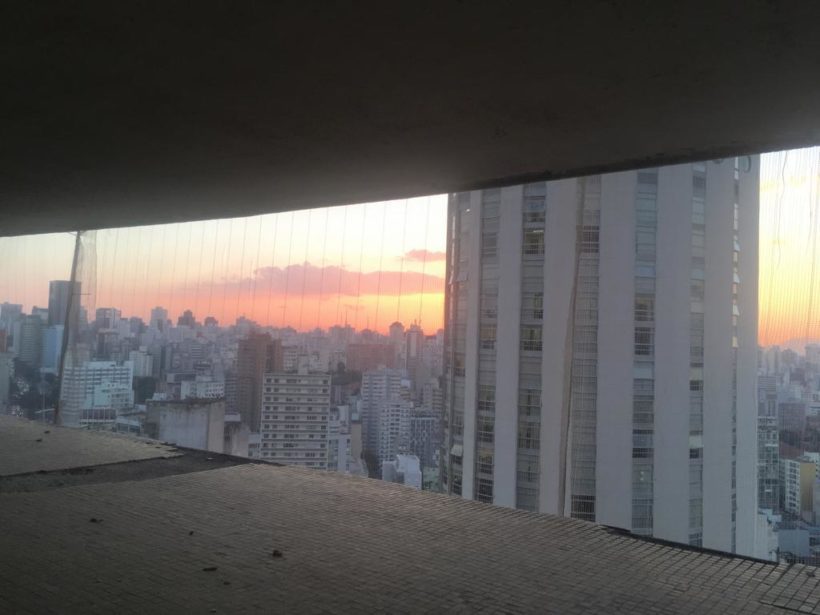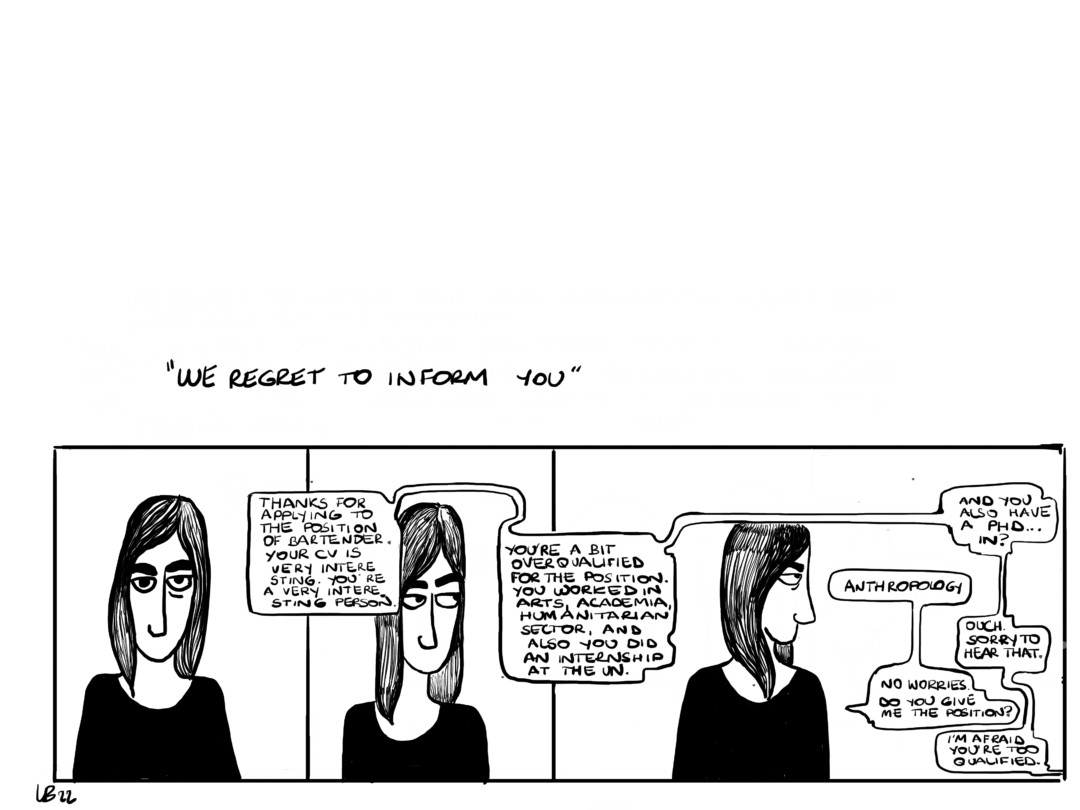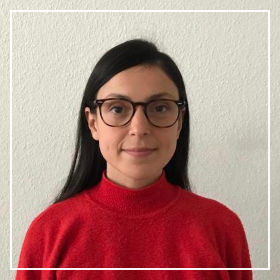This post is part of our Encountering Precarities series. The thematic thread engages with the multiple and asymmetrical forms of precarisation and vulnerabilisation involving both ethnographers and their interlocutors in and beyond the field.
In the constant changes in work, latitudes, and social contexts that I have gone through during my intermittent anthropological career, I have been forced to think of myself as a temporary, uprooted, precarious subject. The attempt to chase a professional space that escapes as soon as it appears on the horizon, and the constant need to reinvent my skills and use informal networks to find sources of income, have been the erratic conjunctures that I tried to navigate financially, professionally, relationally.
In this brief intervention, my aim is to present part of my post PhD trajectory to discuss, in the second part of the essay, what kind of political subjectivity and epistemological attitude I developed as a consequence. While living in a precarious condition, I could experience and observe how the condition’s intensity changes according to the intersection between racialisation, class, gender, nationality, sexuality and other social features. Facing and encountering other precarious subjects in the various professional contexts in which I worked, and who sometimes endured much harsher and marginalizing forms of precariousness than mine, I also found partial existential proximities, as the one of a shared condition, even if differently produced and signified, of “unfinished adulthood”. Using my own trajectory to illuminate some of the processes of precarisation within academia that are widely shared by new generations of scholars, especially in anthropology (Fotta, Ivancheva & Pernes, 2020), I argue that the resulting positionalities could represent an opportunity to rethink the epistemic and relational politics of fieldwork and ethnography more broadly.
A personal journey into precarity
In December 2010, I was among those admitted in the Anthropology and Epistemology PhD program of the University of Bergamo, but, as I was not granted a scholarship, I decided not to take the position, as the need to work full time to secure an income would have sabotaged my Ph. D. commitment. Eventually, one of the scholarship recipients decided to take a position somewhere else, and I was lucky enough to be admitted to the program fully-funded. During the three years of my Ph.D. I conducted extended fieldwork in New York. I also worked as a babysitter as a side job because the scholarship was not enough to cover basic living costs in a city so expensive.
After the Ph.D., I planned to find a postdoc in the USA. I longed to find one in the Department of Anthropology at of a university in New York which I visited during my doctoral research. I knew I needed publications in English to have a chance in the postdoc game in the USA, and I wanted to stay in New York to keep the relationship with my partner alive. But the three-year Ph.D. scholarship did not cover much more than fieldwork and dissertation writing, and my situation was further complicated by the fact that in the last year I was the primary caretaker for my mother during her battle against breast cancer. After I graduated in the spring, I moved into a guesthouse for hikers in the Dolomite mountains to work and save money for a three-month unpaid internship at the UN headquarter in Autumn. I did not have any genuine interest in working at the UN, but a friend who was working there persuaded me that a job there was the quickest way to get a US visa. At the end of the summer, I moved back to New York and started to work full-time at the UN while babysitting in the evenings. After a month and a half of interning, my UN supervisor told me she would recommend me to the department’s director for a job in the same branch. At the end of the internship, the director told me the department had “too many Italians already”, and offered me a volunteer job instead. I refused, and went back to Italy leaving my partner behind, without any foreseeable return as I had by then exhausted all my visa possibilities. Once back, I taught my first course at the University of Bologna, at the campus in my hometown. But the class was only for 24 hours, so I looked for another job while staying in the tiny apartment of my mother.
Even in their radical difference, our conditions of “waiting for adulthood” were generated within neoliberal economies, where previous marks of adulthood, as the ideal of “the good life” encompassing a stable occupation and income, parenthood and housing ownership are delayed or denied (Honwana 2014; Berlant 2011).
After a month, I began work as a waitress in a restaurant in the countryside. It was just after the course I had taught had ended and I dreaded the idea that any of my students might walk into the restaurant and I would have to serve them. In a previously unsuccessful interview for a bartending position, my work as an adjunct professor came up when I had to tell my prospective employer that I was unavailable to participate in an intense training course about Japanese cocktails since I taught classes on Thursdays. He was genuinely shocked that I was simultaneously working at the University and asked me with a puzzled look, “Why did you come here to look for a job?” His embarrassment was so intense that he dismissed me, saying that probably the job “was not the right one for me” and “they were looking for a different profile.”
While I was working in the restaurant in the Italian countryside, I called a friend who had studied anthropology with me and was working in the Italian asylum system for a “leftist” NGO. Every time we chatted about her work I felt she was witnessing something significant, something that I was watching from afar. I also knew the demand for workers in the reception system was increasing in line with the arrival of people through the Central Mediterranean route. I applied and immediately got an interview with the Vice Director at their headquarters. As I discovered later, she also had a degree in social sciences; and she quoted Farmer and Foucault when talking about asylum seekers and the reception system, and she also collaborated with Italian ethno-psychiatrists and a group of pro-migrant activist lawyers. At the time of my interview, she told me that the work I applied for was a form of “political activism” and that I needed to be ready for that. Only afterward did I learn what that sentence meant: be prepared to sacrifice your personal life and welfare for a poor salary, unpaid overtime, emotional and stress overload, and a position as street-level bureaucrat in a dysfunctional system of migration management.
To cope with such conditions, workers and asylum seekers started to play with the many grey zones and blind spots of the Italian asylum system at the height of its crisis, building unruly relationalities and transgressing restrictions as much as possible. Like all my colleagues, I worked around 60 hours or more a week, earning a salary of 1000 euros a month, a generational mark of the southern European precariat (Matos, 2012). Like many Italians in their 30s, I shared an apartment with two other people, one being another asylum worker.

Exasperated and defeated in my efforts to support people becoming right-holding individuals and not be treated as racialised and criminalized others, after 10 months I decided to quit and move with my partner, who in the meantime decided to leave New York, to Berlin. There I found another job, also full time, as an artist’s assistant while still teaching classes at the University of Bologna to keep a thin link with academia that could help me with postdoc applications and publishing. I eventually won a postdoc scholarship three years afterwards with a Brazilian research foundation, but when the pandemic hit after 6 months I was in Sao Paulo I decided to go back to Europe, worried about my parents as the first wave took a heavy toll on Italy. Even if the University in Sao Paulo was closed and we already moved all our work online, the foundation canceled my scholarship upon my arrival in Europe, and then conceded to just suspend it after my supervisor persuaded the director. I spent six months without a salary, and in October 2020 I went back to Sao Paulo for 5 months, living mostly confined to a garage-turned-studio in the backyard of the house of a friend’s friend as the pandemic was still raging.
Despite the many challenges I have faced since completing my PhD, my research for the Brazilian foundation in Sao Paolo seems to have reactivated the possibility of an academic career, even if still through temporary research positions and postdocs. I am 38 now, and I travel constantly, trying to keep my professional and personal life together. I don’t have children, I do not possess a house or even a car. My CV is a weird puzzle of different experiences which cannot appear all together in the same format and for the same job post.
Chasing adulthood through geographical mobility
In these years, I had to deal with the bureaucracies of different states and their migration laws; I had to leave countries and the ties I had there, postponing my imagined life goals and lingering in a chronic condition of “waithood” (Honwana, 2014) for my so-called adult life to begin, whatever the “unmarked category” of adulthood (Durham and Solway, 2017) meant in the various cultural and relational contexts I was moving in.
While working in the reception center and doing my current fieldwork on post-asylum political subjectivities between Italy and the Gambia, I felt that this trajectory built a thin existential bridge between the migrants I encountered and myself. We shared the decision to resort to mobility to deal with cultural expectations and generational social hopes regarding adulthood in a differently harmful neoliberal order. For many of my interlocutors, these expectations entailed the necessity to support extended families and small communities and were related to much more basic needs. As a Southern European, I was more concerned with the impossibility of responding to the middle-class ideal of self-realization and stability cast on me by my family, society and last but not least academia itself. Even in their radical difference, our conditions of “waiting for adulthood” were generated within neoliberal economies, where previous marks of adulthood, as the ideal of “the good life” encompassing a stable occupation and income, parenthood and housing ownership are delayed or denied (Honwana 2014; Berlant 2011).
Nevertheless, our wayfaring was radically differentiated along the lines traced by racialisation, class, nationality, degree of education, and, last but not least, gender. The mobility regime hampers the migration of my male Gambian interlocutors and exposes them to human rights violations, everyday/institutional/structural racism, exploitation, and containment. Even if “we are all migrants” (Feldman, 2011), forced to cultivate creativity, flexibility, and improvisation in the hustle economy, my Italian friends and I never had to risk our lives to cross borders. Even when we were considered redundant and disposable labour at times, we were never criminalized because of our decision to migrate. In other words, we still hold an overall safe position in the unequal differentiation of human value produced by racial capitalism (Robinson 2020; Melamed 2015). This differentiation was made very clear by a young Gambian named Lamin, who commented with a sardonic smile when I gave notice of my resignation and moved to Berlin, “You can decide to leave, we can’t. You can take the plane to go to Berlin, we have to go by foot.” I had the privilege to be able to close my work experience in the reception center, while they did not have any other choice than to stay and endure its oppressive devices. I could travel with my EU passport to Berlin by plane, their only way was to cross borders undocumented climbing the Brenner pass, the Alpine border between Italy and Austria.
If it is true fieldwork asymmetries are in a certain sense unavoidable, then sharing information on our lives could be a way to engage on a more equal ground. This form of sharing would make us visible not just to our academic audience, when we perform reflexivity (Klinkert, 2021), but also to those we want to talk about.
When thinking about and deciding on research topics, I inevitably resorted to such extra-academic work and life experience. In particular, the decision to look at post-asylum subjectivities came from a personal necessity to create an analytical and (auto)ethnographic space to interrogate the phenomena I witnessed and acted upon chaotically in my work as legal counsellor in the reception center in the year 2015/2016. Fabian points out how the presence of anthropologists in the field is something that precedes representation and its politics in writing (Fabian, 2001). In the case of my current research, my presence in the asylum system as a worker preceded my presence in it as an ethnographer. I carved out a space for reflecting on these presences as a need to engage and disentangle the relational threads I intertwined as an asylum worker and researcher, and I used the opportunity of ethnography to extend their epistemic, affective, and political possibilities. In doing so, I reflected on what created the partial proximities between precarious academics, asylum workers and asylum seekers in their quest for adulthood and social recognition and which discontinuities and political complicities distanced them. Because of this, I always talked about my precarious trajectory with my close interlocutors: I do this not (hopefully) out of narcissism but because any relationship in which I don’t do this won’t be a relationship at all. If it is true fieldwork asymmetries are in a certain sense unavoidable, then sharing information on our lives could be a way to engage on a more equal ground. This form of sharing would make us visible not just to our academic audience, when we perform reflexivity (Klinkert, 2021), but also to those we want to talk about. Furthermore, in the case of this particular research, engaging precarity as an epistemological positioning was obviously crucial.
A precarious ethnographic epistemology?
The bumpy path of my anthropological upbringing, the stops and go, the re-routing, and the wandering around relentlessly pushed me to enter many worlds in different positions: the researcher, the social worker, the art worker, the caretaker, the hospitality worker, the reluctant intern, and the migrant who prioritizes a visa over the desired job. Through these temporary statuses, I experimented and encountered different selves and different shades of my whiteness and privilege, acknowledging the intersectionality of precarity. Through precarity, I elaborated not just my political consciousness but also my anthropological sensitivity. As many colleagues who never held (yet?) academic capital (Bourdieu 1988) and who belong to the “flexible employed periphery” that is constantly growing in academia and anthropology in particular since the 80’s (Roseberry 1996), I believe the “field” (in Bourdieusian terms) of precarious and intermittent academic employment could be more fruitfully interrogated in terms of what it generates in terms of knowledge production and politics of fieldwork. In my case for example, it brought me towards a more vulnerable, enmeshed, and uncertain positionality, which constitutionally undermines any objectifying authority of the knower over the known. Maybe then, thinking through shared precarity could not only be a methodology for political engagement but one to reflect on the epistemic opportunities represented by anthropologists’ unfinished and unstable vital conjunctures (Johnson-Hanks, 2002) in neoliberal academia.
References
Bourdieu, Pierre. 1988. Homo academicus. Stanford University Press.
Fabian, Johannes. 2001 Anthropology with an attitude: critical essays. Stanford University Press.
Feldman, Gregory. “We are all migrants.” In We Are All Migrants. Stanford University Press, 2015.
Hughes, Dhana, Claire Dungey, Lotte Meinert, Andrew B. Kipnis, Karen Sykes, Janice Boddy, and Anna Kruglova. 2017. Elusive Adulthoods: the anthropology of new maturities. Indiana University Press.
Klinkert, Victoria Louisa. 2021. “Humbling anthropology: Ego reflexivus and White ignorance.” HAU: Journal of Ethnographic Theory 11, no. 1: 309-318.
Matos, Patrícia. 2012 “Call center labor and the injured precariat: shame, stigma, and downward social mobility in contemporary Portugal.” Dialectical anthropology 36, no. 3: 217-243.
Melamed, Jodi. 2015. “Racial capitalism.” Critical Ethnic Studies 1, no. 1: 76-85.
Robinson, Cedric J. 2020. Black Marxism, revised and updated third edition: The making of the black radical tradition. UNC press Books.
Roseberry, William. 1996. “The unbearable lightness of anthropology.” Radical History Review 1996, no. 65: 5-25.
Featured image by Letizia Bonanno.





